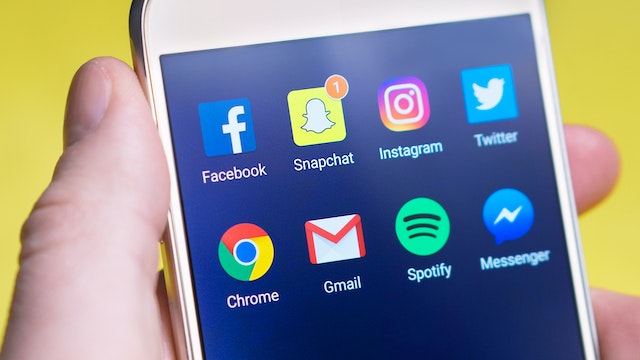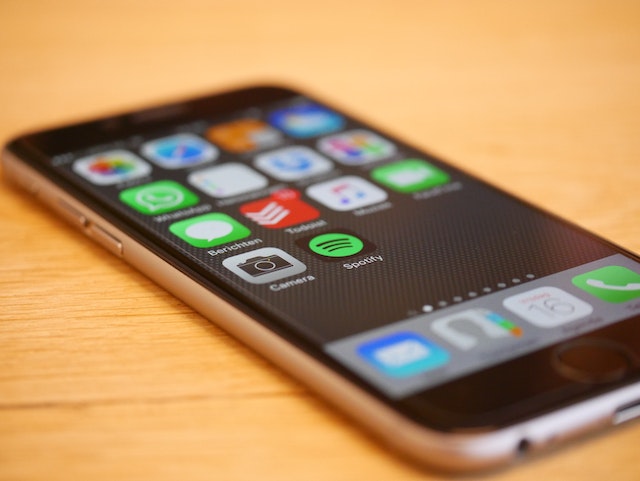Social networks are no longer just a way to connect with friends and family. They have become an integral part of life, as important as food and sleep. It seems that every moment of our lives is now recorded in pictures with the help of smartphones or digital cameras.
In addition, if we do not have anything to show, then there are always images on social networks – they will give us a lot of likes and admiration from others. This creates an illusion that we live in the best world ever created by humans, which makes us feel comfortable in its embrace.

But this comfort comes at a price: it’s very easy to get lost in this world where nothing happens except for sharing content on your page; it’s also easy for this virtual reality to become dangerous for you personally.
Contents
The Process of Creating and Sharing Content, Regardless of its Quality and Usefulness, has Become the Main Source of Entertainment for Users.
In social networks, the process of creating and sharing content – regardless of its quality and usefulness – has become the main source of entertainment for users.
Based on this process, they created an entire ecosystem that has become an integral part of their daily lives. As a result, the number of people addicted to social networks continues to grow every year.
And the saddest thing is that children, schoolchildren and students who managed to get into the period of popularity of networks become addicted. Most of their thoughts on this matter can be found in the essay on social media at Happyessays, where they agree that social networks have really become more important to them than school or relatives.
And in this article we will talk about the main reasons people are addicted to social networks and what can be done about it:
– Lack of self-control A lot of people don’t have the willpower or self-discipline to resist temptation. They just can’t help themselves when there’s something that they want.
And this is why social networks are so popular: users get an instant dopamine rush whenever they see their friends posting new content on their profiles, which makes them feel good about themselves.
In other words, social media addiction is a form of self-medication for people who don’t know how to deal with their problems in other ways.
– Escapism Social media addiction is often used as a form of escapism for people who are depressed or lonely. It allows them to forget about their problems and focus on something else for a while—even if it’s just posting funny memes on Facebook.
– Feeling of inclusion People often feel lonely, especially if they don’t have many friends in real life or if they moved to a new place recently. Social networks allow them to connect with others who share similar interests and values.
The feeling of belonging is very important for our survival as human beings, so it makes sense that people get addicted to social media when they can’t find it elsewhere.
Read Also:
- File And Print Sharing Resource is Online But Isn’t Responding To Connection Attempts
- Will There be a Season 3 of Beastars
– Instant gratification One of the reasons why people get addicted to social media is because it provides instant gratification. Whenever you post something on Facebook or Instagram, your friends will usually like it or comment on it within minutes—even if they’re busy with work or school. This makes you feel good about yourself because other people are noticing you.
Social Networks Create a False illusion that the World Around You Really Cares About What You are doing.
People often post things that they think will get a reaction, not just positive feedback but also negative comments as well. This shows how much they care about being noticed by others. It is a strange phenomenon where people who post on social media do not care if it is positive or negative, they just want to be noticed.
In many ways, this is not surprising. We live in a world where people are constantly being bombarded with messages from all sides, so when we post something on social media it feels like we are finally getting someone’s attention.
The problem is that most people only care about what they want to hear and do not take the time to actually listen or think critically about what you have said or posted.
This is why it can be so hard to tell if someone really cares about what you are saying or just wants to hear something that confirms their own beliefs. If people were more willing to listen to what others had to say, then perhaps we would not have so many problems in this world today.
The Dilemma of Choice Between Real and Virtual Friends Becomes an Integral Part of the Lives of Many Users.
For some, it leads to addiction, which can ruin their health, career, and relationships with loved ones.
- The importance of maintaining a balance between real and virtual friends in order to avoid addiction:
- Maintaining a balance between real and virtual friends is important for people who want to spend more time with their families or who want to avoid addiction. Spending too much time on social networks can lead to isolation from family members or friends who live nearby and do not use any gadgets (phones, tablets).
- A balance between real and virtual friends is important to avoid addiction. Social networks are not bad in themselves, but when they become an obsession for someone who spends most of the day on them, it becomes dangerous. If you want to stay away from addiction, spend time with your family or friends who live nearby instead of being glued to a smartphone screen.

Self-Presentation has Become an Integral Part of Social Networks.
Social networks have become an integral part of everyone’s life, and they’re changing us. This is because social networks are based on self-presentation—the act of communicating how you want to be perceived.
And while this is nothing new (we’ve always had the ability to dress up for a fancy event), social networks change the stakes in terms of how we present ourselves because they allow people to share both good news (“I got accepted into college!”) and bad news (“My dad died today”).
The result? We spend more time thinking about what other people think about us, which in turn makes us more concerned with our own image—so much so that studies show that self-presentation has become an integral part of our day-to-day lives online.
Read Also:
Conclusion
This is just one of the many examples of how the virtual world has become an integral part of our lives. While some may think that it’s not a big deal, others believe that this habit can cause serious problems.
After all, social networks have created a false sense of reality, which makes people more likely to behave in ways they wouldn’t usually do in real life.






























